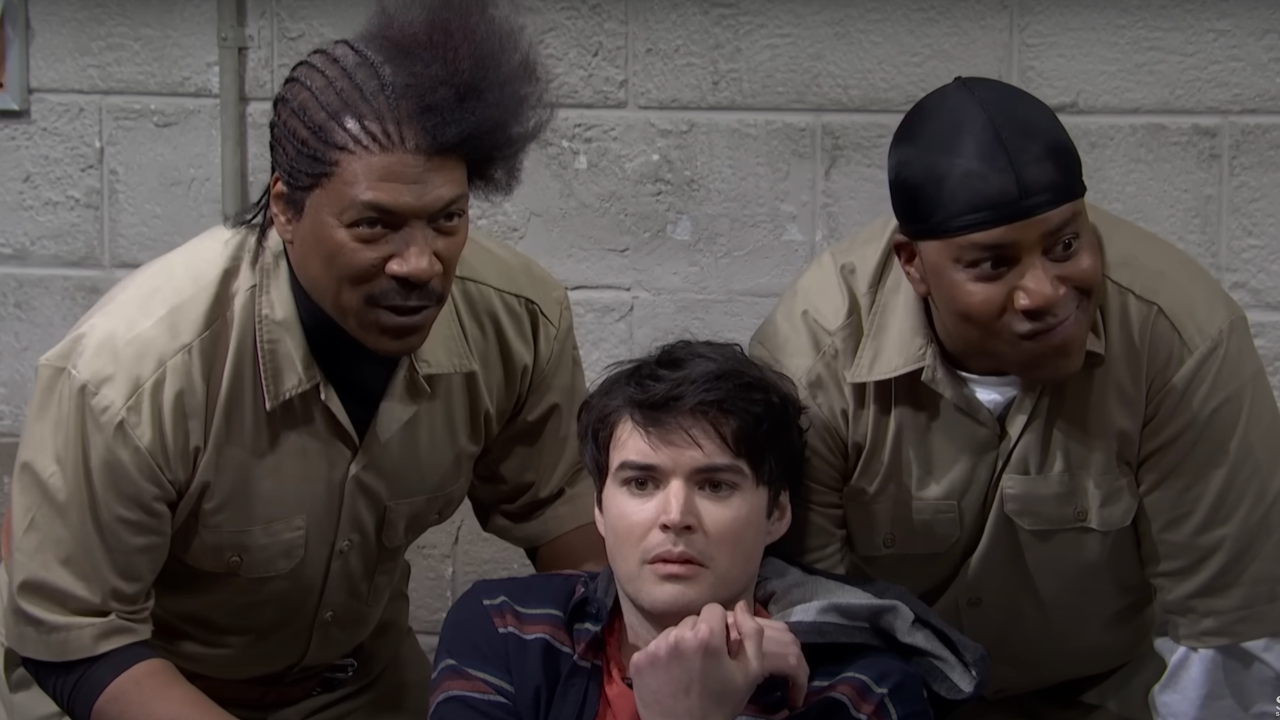Disney Nature has made the celebration of Earth Day (April 22) the launch date for their ambitious and poignant animal documentaries. To date, we've been offered Earth, Oceans, African Cats, and Chimpanzee. And now for Earth Day 2014, this studio present us with the latest entry in this beloved series of docs, simply titled Bears.
Directed by Disney Nature veterans Alastair Fothergill and Keith Scholey, Bears follows a mother brown bear through the first year of her two cubs' lives, introducing this family of three as they are still nestled in hibernation. At the top of the doc, we're told (via voiceover by John C. Reilly) that only about half of bear cubs make it through their first year. From here, audiences are exposed to the various dangers that threaten a growing cub as the film follows mother bear Sky and her babies Amber and Scout from their den in the mountains of Alaska, down to the coasts where salmon flock and big bears feed, and deep into the forests in search of sanctuary from predators.
The production teams behind Disney Nature docs are truly top notch. I lost count of how many times my jaw literally dropped from the breathtaking landscapes, terrifying majesty of avalanches, and fascinating yet intimate moments of animal behavior the cinematography smoothly captures. The grandeur of Alaskan forests, rivers, shores and snowy mountaintops are revealed in steady and precisely focused aerial shots. On the ground, wild life photographers get shockingly close to their subjects, allowing for us to make out every hair and every tiny movement.
Thankfully, the credit sequence gives interested audience members a peak behind the scenes, cutting from footage of the team shooting the film's wild life, to the incredible shots they captured. I could go on and on about the truly gorgeous cinematography of Bears, but suffice to say it's so lush and lovely that you could easily enjoy this movie with the sound turned off.
Of course, with no audio, you'd miss out on its enveloping sound design of animal grunts and songs of rushing water as well as Reilly's narration, which is warm and playful, lending humor and verve to the narrative of Sky and her cubs. A jaunty soundtrack supports his friendly tone, setting up an atmosphere that is as inviting to curious children as it is to more intellectually interested adults. In his narration, Reilly imagines what these bears might say if they could speak, putting words to the actions of the adventurous Scout who recklessly likes to wander off and explore, far from the safety of his mother's side.
These moments work to humanize the bears, a move I personally have mixed feelings about. Part of me wonders if it's not better if we accept bears on their own terms rather than forcing them to be understood through human relations and societal constructs. But this humanizing method does help pull us in to their tale, essentially making Sky's story that of a single mother doing everything she can for her children. It's relatable and moving to a degree I hadn't anticipated. When her cubs are at risk, it doesn't feel like some random animal in danger. It feels like a lost child, and your heart positively aches for him to be returned to the safety of his mother's arms.
Undeniably, Bears works very well as an emotional story of survival and family. But at 77-minutes it felt a little overlong. I know, how can 77-minutes feel long? Well, the structure of Sky's story is a bit repetitive, as each new sequence offers the same conundrum: How can Sky hunt for food when her defenseless cubs need her by their side? If Sky can't feed, she won't have stored up enough fat for the hibernation, meaning she and her milk-suckling cubs could die in the mountains the following winter. The stakes are high, but repeating them again and again does not make them freshly interesting.
After a while, these setups begin to feel a bit episodic. But Fothergill and Scholey attempt to spice up the plot by creating a subplot about Sky's son Scout and his search for independence and a worthwhile role model. This introduces us to growling and dangerous characters like Tikaani, a wolf who'd gladly snatch up a dawdling bear cub, the massive Magnus, an alpha bear with serious territorial issues, and Chinook, a scrawny and desperate male bear forced to scrape by on the fringe of brown bear society. While these are interesting additions to the cast, they never developed in a fruitful direction. So I could have done with a bit less of them.
Clunky script structure aside, Bears is an endearing and beautiful documentary that manages to educate without feeling stodgy. It shows us the wonders and dangers of the Alaskan wilderness as well as the incredible tenderness and brutality of which brown bears are capable. Ultimately revelatory and heartwarming, Bears is a treat for the whole family.
Staff writer at CinemaBlend.












